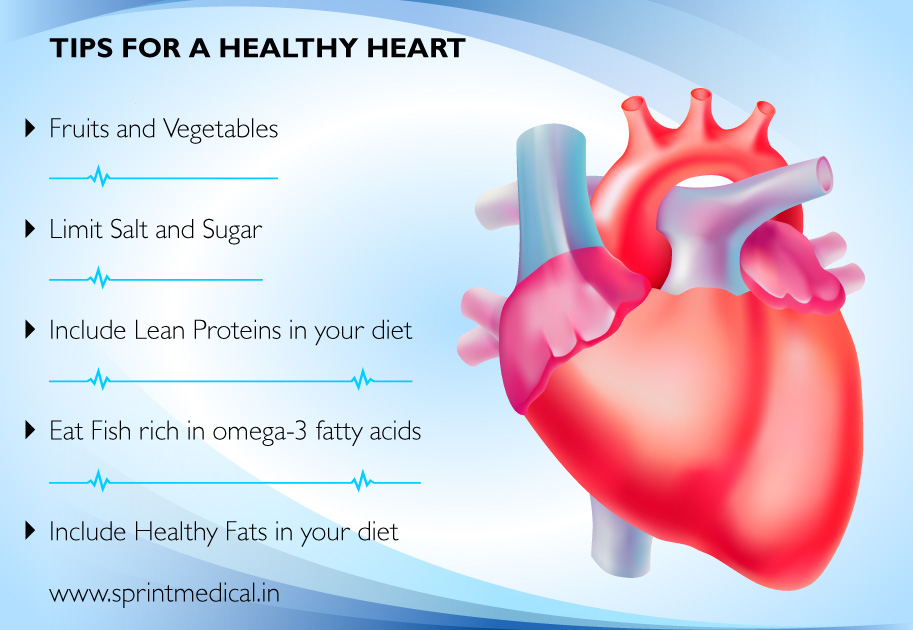Discover effective strategies on how to improve your overall heart health for a longer, healthier life.
How Can I Improve My Overall Heart Health?
Maintaining a healthy heart is crucial for overall well-being. By making simple lifestyle changes, you can significantly reduce your risk of heart disease and enjoy a longer, healthier life. This blog post will explore four key strategies to improve your overall heart health.
Table of Contents
- Introduction
- 1. Adopt a Heart-Healthy Diet
- 1.1 Increase Fiber Intake
- 1.2 Choose Lean Protein Sources
- 1.3 Limit Saturated and Trans Fats
- 1.4 Reduce Sodium Intake
- 2. Engage in Regular Physical Activity
- 2.1 Aim for 150 Minutes of Moderate Exercise per Week
- 2.2 Incorporate Strength Training
- 2.3 Break Up Sedentary Time
- 3. Manage Stress and Maintain Good Mental Health
- 3.1 Practice Relaxation Techniques
- 3.2 Engage in Hobbies and Social Activities
- 3.3 Seek Professional Help if Needed
- 4. Quit Smoking and Avoid Secondhand Smoke
- Conclusion
- FAQs
Introduction
Heart disease is a leading cause of death worldwide, but many cases can be prevented through lifestyle changes. By adopting a heart-healthy diet, engaging in regular physical activity, managing stress, and quitting smoking, you can significantly reduce your risk of heart disease and improve your overall health.
1. Adopt a Heart-Healthy Diet
A balanced, nutrient-rich diet is essential for maintaining a healthy heart. Here are some key components of a heart-healthy diet:
1.1 Increase Fiber Intake
Aim for 25-30 grams of fiber per day from sources like fruits, vegetables, whole grains, beans, and lentils. Fiber can help lower cholesterol levels and reduce the risk of heart disease.
1.2 Choose Lean Protein Sources
Opt for lean protein sources like fish, poultry, legumes, and nuts. Limit red meat and processed meats, which are high in saturated fat and can contribute to heart disease.
1.3 Limit Saturated and Trans Fats
Saturated fats, found in foods like butter, cheese, and fatty meats, can raise LDL (bad) cholesterol levels. Trans fats, commonly found in fried foods and baked goods, are particularly harmful and should be avoided.
1.4 Reduce Sodium Intake
Limit your sodium intake to less than 2,300 milligrams per day, or even lower if you have high blood pressure. Processed and restaurant foods are often high in sodium.
2. Engage in Regular Physical Activity
Regular physical activity is essential for maintaining a healthy heart. Here are some guidelines to follow:
2.1 Aim for 150 Minutes of Moderate Exercise per Week
Engage in at least 150 minutes of moderate-intensity aerobic activity, such as brisk walking, swimming, or cycling, per week.
2.2 Incorporate Strength Training
Include strength training exercises at least two days per week to build muscle and maintain a healthy weight.
2.3 Break Up Sedentary Time
Limit prolonged sitting by taking regular breaks to move around. Even light activity, such as standing or stretching, can benefit your heart health.
3. Manage Stress and Maintain Good Mental Health
Chronic stress can take a toll on your heart health. Here are some strategies to manage stress and maintain good mental health:
3.1 Practice Relaxation Techniques
Try stress-reducing activities like meditation, deep breathing exercises, or yoga to help lower your blood pressure and heart rate.
3.2 Engage in Hobbies and Social Activities
Pursue hobbies you enjoy and spend time with friends and family to reduce stress and improve overall well-being.
3.3 Seek Professional Help if Needed
If you’re struggling with persistent stress, anxiety, or depression, consider seeking help from a mental health professional.
4. Quit Smoking and Avoid Secondhand Smoke
Smoking is a major risk factor for heart disease. Quitting smoking can significantly reduce your risk of heart attack and stroke. If you smoke, seek support to help you quit. Avoid secondhand smoke exposure as well, as it can also increase your risk of heart disease.

Image Credit/https://sprintmedical.in/
Conclusion
Improving your heart health requires a combination of lifestyle changes, including adopting a heart-healthy diet, engaging in regular physical activity, managing stress, and quitting smoking. By making these changes, you can significantly reduce your risk of heart disease and enjoy a longer, healthier life.

Image Credit/https://superhealthessentials.ie/
FAQs
Q1: How long does it take to see improvements in heart health after making lifestyle changes?
A1: Many people notice improvements within a few weeks to months of consistently implementing these strategies.Q2: Can stress contribute to heart disease?
A2: Yes, chronic stress can increase inflammation, raise blood pressure, and contribute to unhealthy behaviors that increase the risk of heart disease.Q3: Is it too late to quit smoking to improve heart health?
A3: No, it’s never too late to quit smoking. Quitting can provide immediate and long-term benefits, reducing your risk of heart disease and other smoking-related illnesses.Q4: How often should I get my cholesterol and blood pressure checked?
A4: Most adults should have their cholesterol and blood pressure checked every 4-6 years, starting at age 20. Those with risk factors may need more frequent monitoring.By following these guidelines and making heart health a priority, you can take proactive steps towards a healthier, happier life.
